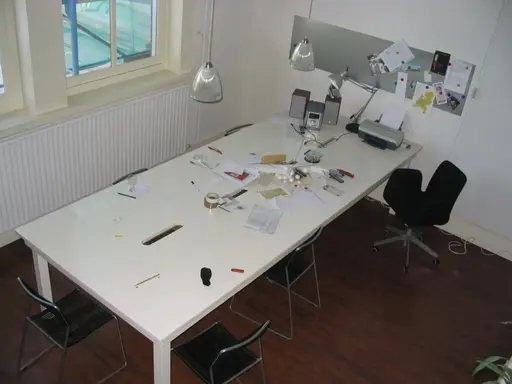Seçil Yersel
artist and co-founder of the artist collaborative Oda Projesi, Istanbul
Seçil Yersel (born 1973) is an artist and the co-founder of the artist collaborative Oda Projesi (together with Özge Açıkkol and Güneş Savaş). Oda Projesi is based in Istanbul and its main objective is to multiply the possibilities for making art by
Seçil Yersel (born 1973) is an artist and the co-founder of the artist collaborative Oda Projesi (together with Özge Açıkkol and Güneş Savaş). Oda Projesi is based in Istanbul and its main objective is to multiply the possibilities for making art by drawing attention to the issue of community in the urban condition. The project invites artists and other people with different backgrounds to realize their projects in Galata, Istanbul. A selection of these projects includes: NowHere Europe – Trans:it. Moving Culture Through Europe, National Museum of Contemporary Art (MNAC), Bucharest, 2006; 9th Istanbul Biennale, Istanbul, 2005; and EindhovenIstanbul, Van Abbemuseum, Eindhoven, 2005. Recent exhibitions by Seçil Yersel include: STADTanSICHTen: Istanbul, ifa-Galerie Berlin, Berlin, 2004 and Mediterranean: Between Reality and Utopia, Photographers’ Gallery, London, 2004. Yersel lives and works in Istanbul.Oda ProjesiOda Projesi, whose members are Istanbul-based artists Özge Acikkol, Günes Savas, and Seçil Yersel, emerged out of the social context characterized by three main issues: class segregation after the military coup and the rise of neoliberalism, urban development including “gentrification,” and the lack of cultural and art infrastructure (according to critic Erden Kosova). These three women artists in their twenties and thirties, all of whom come from (upper) middle-class backgrounds, established their studios in an area called Galata in 2000. Galata, located in the heart of Istanbul, has undergone the transition from a “modern” place for the upper secular class of the Ottoman Empire to a site of urban gentrification as a result of migrant workers from rural eras settling in the area, and is now a well-known tourist destination. For Oda Projesi, locating the studios in Galata meant engaging in social and artistic practices that encounter class and cultural differences and imagine the possibility of community without “unity” and consensus by organizing various art and non-art activities with the neighbors and encouraging artists of different backgrounds to face the difficulty and value of addressing and “relating” to them. After collaborating for seven years, the founding members of Oda Projesi took a hiatus from collective activities to reflect upon their previous activities and future projects.

